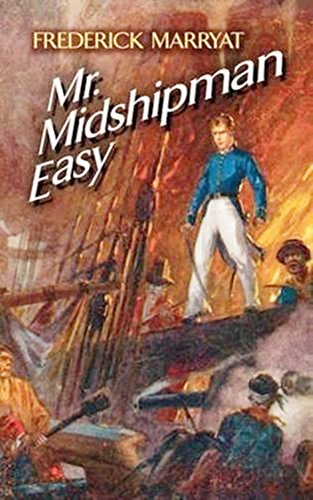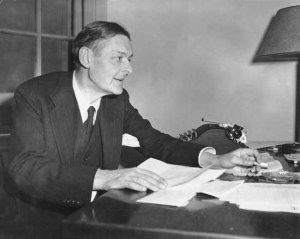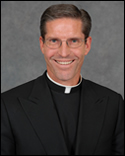Academic Program
The Reading List
The reading list that serves as the core of the St. John's College curriculum had its beginnings at Columbia College, at the University of Chicago, and at the University of Virginia. Since 1937, the list of books has been under continued review at St. John's College. The distribution of the books over the four years is significant. Something over 2,000 years of intellectual history form the background of the first two years; about 300 years of history form the background for almost twice as many authors in the last two years.
The first year is devoted to Greek authors and their pioneering understanding of the liberal arts; the second year contains books from the Roman, medieval, and Renaissance periods; the third year has books of the 17th and 18th centuries, most of which were written in modern languages; the fourth year brings the reading into the 19th and 20th centuries.
The chronological order in which the books are read is primarily a matter of convenience and intelligibility; it does not imply a historical approach to the subject matter. The St. John's curriculum seeks to convey to students an understanding of the fundamental problems that human beings have to face today and at all times. It invites them to reflect both on their continuities and their discontinuities.
FRESHMAN YEAR
HOMER: Iliad, Odyssey
AESCHYLUS: Agamemnon, Libation Bearers, Eumenides, Prometheus Bound
SOPHOCLES: Oedipus Rex, Oedipus at Colonus, Antigone, Philoctetes, Ajax
THUCYDIDES: Peloponnesian War
EURIPIDES: Hippolytus, Bacchae
HERODOTUS: Histories
ARISTOPHANES: Clouds
PLATO: Meno, Gorgias, Republic, Apology, Crito, Phaedo, Symposium, Parmenides, Theatetus, Sophist, Timaeus, Phaedrus
ARISTOTLE: Poetics, Physics, Metaphysics, Nicomachean Ethics, On Generation and Corruption, Politics, Parts of Animals, Generation of Animals
EUCLID: Elements
LUCRETIUS: On the Nature of Things
PLUTARCH: Lycurgus, Solon
NICOMACHUS: Arithmetic
LAVOISIER: Elements of Chemistry
HARVEY: Motion of the Heart and Blood
Essays by: Archimedes, Fahrenheit, Avogadro, Dalton, Cannizzaro, Virchow, Mariotte, Driesch, Gay-Lussac, Spemann, Stears, J.J. Thompson, Mendeleyev, Berthollet, J.L. ProustSOPHOMORE YEAR
HEBREW BIBLE
THE BIBLE: New Testament
ARISTOTLE: De Anima, On Interpretation, Prior Analytics, Categories
APOLLONIUS: Conics
VIRGIL: Aeneid
PLUTARCH: "Caesar," "Cato the Younger," "Antony," "Brutus"
EPICTETUS: Discourses, Manual
TACITUS: Annals
PTOLEMY: Almagest
PLOTINUS: The Enneads
AUGUSTINE: Confessions
MAIMONIDES: Guide for the Perplexed
ST. ANSELM: Proslogium
AQUINAS: Summa Theologica
DANTE: Divine Comedy
CHAUCER: Canterbury Tales
MACHIAVELLI: The Prince, Discourses
KEPLER: Epitome IV
RABELAIS: Gargantua and Pantagruel
PALESTRINA: Missa Papae Marcelli
MONTAIGNE: Essays
VIETE: Introduction to the Analytical Art
BACON: Novum Organum
SHAKESPEARE: Richard II, Henry IV, The Tempest, As You Like It, Hamlet, Othello, Macbeth, King Lear, and Sonnets
POEMS BY: Marvell, Donne, and other 16th- and 17th-century poets
DESCARTES: Geometry, Discourse on Method
PASCAL: Generation of Conic Sections
BACH: St. Matthew Passion, Inventions
HAYDN: Quartets
MOZART: Operas
BEETHOVEN: Third Symphony
SCHUBERT: Songs
MONTEVERDI: L'Orfeo
STRAVINSKY: Symphony of PsalmsJUNIOR YEAR
CERVANTES: Don Quixote
GALILEO: Two New Sciences
HOBBES: Leviathan
DESCARTES: Meditations, Rules for the Direction of the Mind
MILTON: Paradise Lost
LA ROCHEFOUCAULD: Maximes
LA FONTAINE: Fables
PASCAL: Pensees
HUYGENS: Treatise on Light, On the Movement of Bodies by Impact
ELIOT: Middlemarch
SPINOZA: Theological-Political Treatise
LOCKE: Second Treatise of Government
RACINE: Phaedre
NEWTON: Principia Mathematica
KEPLER: Epitome IV
LEIBNIZ: Monadology, Discourse on Metaphysics, Essay On Dynamics, Philosophical Essays, Principles of Nature and Grace
SWIFT: Gulliver's Travels
HUME: Treatise of Human Nature
ROUSSEAU: Social Contract, The Origin of Inequality
MOLIERE: Le Misanthrope
ADAM SMITH: Wealth of Nations
KANT: Critique of Pure Reason, Foundations of the Metaphysics of Morals
MOZART: Don Giovanni
JANE AUSTEN: Pride and Prejudice
DEDEKIND: "Essay on the Theory of Numbers"
"Articles of Confederation," "Declaration of Independence," "Constitution of the United States of America"
HAMILTON, JAY AND MADISON: The Federalist
TWAIN: The Adventures of Huckleberry Finn
WORDSWORTH: The Two Part Prelude of 1799
Essays by: Young, Taylor, Euler, D. Bernoulli, Orsted, Ampere, Faraday, MaxwellSENIOR YEAR
Supreme Court opinions
GOETHE: Faust
DARWIN: Origin of Species
HEGEL: Phenomenology of Mind, "Logic" (from the Encyclopedia)
LOBACHEVSKY: Theory of Parallels
TOCQUEVILLE: Democracy in America
LINCOLN: Selected Speeches
FREDERICK DOUGLASS: Selected Speeches
KIERKEGAARD: Philosophical Fragments, Fear and Trembling
WAGNER: Tristan and Isolde
MARX: Capital, Political and Economic Manuscripts of 1844, The German Ideology
DOSTOEVSKI: Brothers Karamazov
TOLSTOY: War and Peace
MELVILLE: Benito Cereno
O'CONNOR: Selected Stories
WILLIAM JAMES; Psychology, Briefer Course
NIETZSCHE: Beyond Good and Evil
FREUD: Introductory Lectures on Psychoanalysis
BOOKER T. WASHINGTON: Selected Writings
DUBOIS: The Souls of Black Folk
HUSSERL: Crisis of the European Sciences
HEIDEGGER: Basic Writings
EINSTEIN: Selected papers
CONRAD: Heart of Darkness
FAULKNER: Go Down Moses
FLAUBERT: Un Coeur Simple
WOOLF: Mrs. Dalloway
Poems by: Yeats, T.S. Eliot, Wallace Stevens, Valery, Rimbaud
Essays by: Faraday, J.J. Thomson, Millikan, Minkowski, Rutherford, Davisson, Schrodinger, Bohr, Maxwell, de Broglie, Heisenberg, Mendel, Boveri, Sutton, Morgan, Beadle & Tatum, Sussman, Watson & Crick, Jacob & Monod, Hardy
On Having a Good Library
It was once remarked that a good benchmark of success for an undergraduate student, at the end of his four years, is to look at his library and to see how it has grown: not merely in size, but in quality. Part of what the ardent student will find, looking through his library, is a large number of authors of whom he did not know before going to college, but now finds as familiar as old friends. His shelves should not be laden with popular fiction and Lost and Philosophy (which might be a good title if not for the television show), but with good books and better books: classics like The Republic, Plutarch's Lives, The Divine Comedy, The City of God, The Nicomachean Ethics, The Annals of Tacitus, Chesterton's Orthodoxy, Eliot's The Waste Land, and so many, many more. It is also important, and fruitful, to amass a collection of the obscure books – not for the sake of obscurity, but for the sake of fullness. St. Thomas Aquinas' Summa Theologiae is a masterpiece amongst masterpieces; but one's collection of his oeuvre, and thus his sapient contribution to the human conversation, is incomplete without his lesser known works, such as On the Unity of the Intellect Against the Averroists or The Division and Method of the Sciences. Nor is the reader given so full an appreciation of Shakespeare's Troilus and Criseyde without having also experienced Chaucer's.
Of course, it is one thing to have a cornucopia of good books, and quite another to have read them all. There is perhaps no greater affront to books than to use them as mere decorations; even burning them gives more credence, for a burned book is one of two things: one, read and held in either great contempt or great fear, so much so that someone (mistakenly) thinks the only way to deal with it is fire, or two, not read and prejudicially subjected to the same treatment. Regardless, there is more respect paid to the book by its immolation, in recognizing it as something that inherently attempts entrance into the intersubjective realm of thought and discourse, than by it being turned into an idle and vain piece of decoration. Nevertheless there is nothing inherently wrong with an outwardly attractive book (so long as the content is equally meritorious to the covering). On the contrary, Catholic Treasures' Douay-Rheims translation of the Holy Bible, complete with the Reverend Haydock's notes, is a most fittingly beautiful volume; the Harvard Classics series of books, though often of inferior translation, are eye-catching and largely worth reading. Even the cloth-bound Loeb Library, which has the original Latin or Greek of great works on one side and a passable English translation on the other, is a pleasant site for the eyes, and a magnificent tool for those aspiring to the classical languages. There is nothing wrong at all with deriving pleasure from both the inside and the outside of your books; but be wary of confusing the primacy of merit!
Thus, one's library should never grow too quickly. It is terribly hard to read a good book in a short span of time; at least, to read it as it ought to be read, with care and diligence. Mortimer J. Adler, a 20th century man of genius, editor-in-chief of The Great Books of the Western World a publication of the Encyclopaedia Britannica, and co-author with Charles Van Doren of How to Read a Book (among many others), once said that he never reads a great book faster than 20 pages an hour, and never without paper and pencil to hand. It is a difficult thing in theory and in mental preparation, to restrict oneself to reading so slowly, for there are so many great, important works that an intellectually alacritous mind desires to read. Yet once having discerned the fruits to such a slow and careful endeavor, once the distinction is drawn between reading a book casually and reading a book intelligently, critically, one can only feel somewhat sickly if he tries to read a great book without due diligence.
To summarize, one's library should grow much at the same pace as one's body; and as the latter slows down its growth, so should the former begin to increase as the mind – which, unlike the body, knows no limits – becomes ready for the knowledge that a good library may impart. Read good books, and read them slowly; and while you will inevitably, from time to time, read books that are not so good, with which there is nothing wrong so long as it is a diversion to allow the mind to rest, be sure to reflect on whatever you read, to weigh it against all the works of the Western tradition, and to put it in its proper place. In other words, Stephen King is poor company for Dante Alighieri on your shelf.
Suggested Viewing:
#mce_temp_url#
 At
At 



